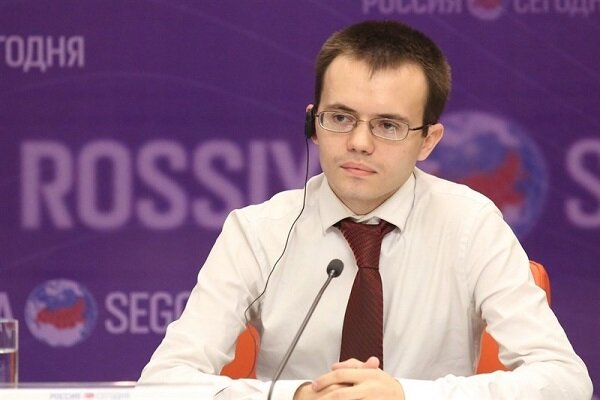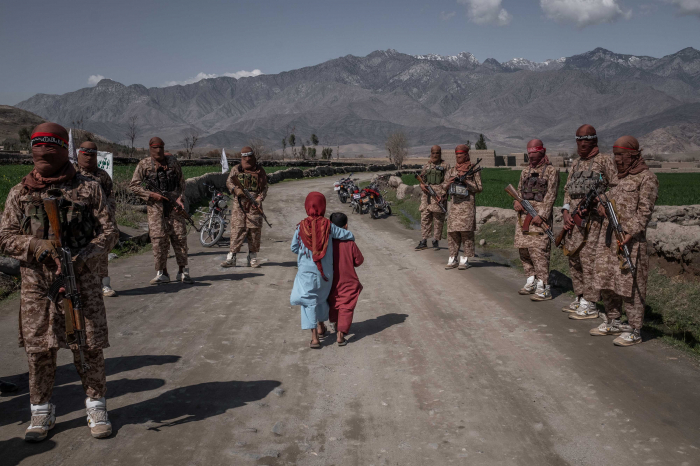The Taliban's lightning-fast takeover of Afghanistan last month fundamentally changed the geostrategic calculus at the crossroads of Central & South Asia. The group is designated as terrorists by Russia and most other countries, though the Kremlin still pragmatically engages with it in the interests of peace and security. In fact, Russia is among the handful of countries that haven't suspended their diplomatic operations in Afghanistan after that dramatic event, which speaks to its intent to retain some degree of influence there and possibly even expand it with time in order to help stabilize the regional situation.
Neighboring Tajikistan, however, takes an altogether different approach than its Russian partner with whom it's allied through the Collective Security Treaty Organization (CSTO). President Rahmon criticized the international community during his speech on Tajikistan's Independence Day for remaining silent about the human rights situation there and generally showing indifference to the overall state of affairs in Afghanistan. The country's Council of Islamic Scholars also decreed that the Taliban's activities are un-Islamic, which represents the strongest criticism of the group yet from any of Afghanistan's regional stakeholders.
The contrast between the Russian and Tajik positions towards the Taliban in spite of their mutual defense pact is explained by their different interests in this conflict and shows that Moscow doesn't control Dushanbe unlike what some observers have previously claimed. Both CSTO allies are against the spread of terrorism from Afghanistan, hence their joint military exercises and the support that Russia provides to the Tajik Armed Forces. They're also concerned about a regional refugee crisis destabilizing Central Asia, including through terrorists infiltrating other countries under the guise of refugees.
Where they principally differ is in their political approach to the Taliban. Russia doesn't endorse the group (especially since it still officially considers them to be terrorists), but it also doesn't condemn it either. Russian Special Presidential Envoy for Afghanistan Zamir Kabulov previously praised the Taliban for fighting against ISIS, another banned terrorist group, which suggests that the Kremlin might regard them as a regional anti-terrorist bulwark against the so-called “greater evil”. Moscow also acknowledges that neither it nor any other regional stakeholder has the capabilities or political will to reverse the Taliban's gains in Afghanistan.
Tajikistan, meanwhile, is concerned about two primary factors. First, ethnic Tajiks represent the second largest group in Afghanistan and have historically been opposed to being ruled by the Pashtun-majority Taliban that represents the country's largest group. Importantly, neither Tajiks nor Pashtuns are a majority in Afghanistan. Second, the Afghan Tajiks are also more secular in their lifestyle than the Pashtuns, especially those who are part of the Taliban and are concerned about living under the group's strict interpretation of Sharia. This remains the case despite some Tajiks joining the Taliban and even rising to leadership levels within it.
From Dushanbe's perspective, the Taliban aren't just an ideologically inspired terrorist group that exploits Islam in its quest for power, but also a potential threat to its co-ethnics in Afghanistan who fear being dominated and possibly even abused by its mostly Pashtun members. Tajikistan is also a secular state so it naturally has ideological problems with a neighboring one whose de facto leaders just imposed a strict interpretation of Sharia upon society. Most importantly, however, these concerns are also shared by average Tajiks in Tajikistan, meaning that their government is under pressure from the public not to appear “soft” towards the Taliban.
To elaborate a bit more on this observation, it's natural that Tajiks in Tajikistan would feel close towards their co-ethnics in Afghanistan and be concerned about their well-being. They don't want their fellow Tajiks to live in fear of an ideologically driven group dominated by another ethnicity that has a track record of having imposed its views upon others in the past at their expense. Dushanbe therefore cannot remain silent in the face of these credible concerns, though at the same time it mustn't make any moves that could inadvertently worsen the situation such as by militarily supporting anti-Taliban groups.
This places Dushanbe in a dilemma, one which only Moscow is capable of extricating it from, but even that'll prove difficult for the Kremlin's world-class diplomats. Russia has to balance its interests between the Taliban and Tajikistan in order to prevent tensions between them from spiraling out of control. It can't support the Taliban's acting government which is overwhelmingly comprised of Pashtuns with only extremely minimal representation of Tajiks and absolutely no representation of non-Taliban political forces lest the Tajiks in Tajikistan accuse of their historical ally of disregarding their interests and possibly protest in response.
At the same time, however, Russia can't strongly criticize the Taliban either otherwise it risks losing its hard-earned influence with the group which could possibly be leveraged in the direction of moderating its activities and thus contributing to regional peace, security, and ultimately stability. The best approach is the one that the Kremlin is currently practicing, which is to visibly support its Tajik ally's legitimate national security concerns related to border security and refugees while promulgating a balanced political policy towards the Taliban which neither endorses nor condemns the group after it became Afghanistan's de facto leaders.
The Russian-Taliban-Tajik triangle is one of the trickiest geopolitical arrangements in the world right now since a wrong move by any of those three could greatly worsen the strategic situation between them. The Taliban has no regional expansionist plans but it's ideologically driven to impose its vision of society upon all others, including ethnic Tajiks regardless of how uncomfortable some of this minority feel with living under such a strict system. Any serious violence between the Taliban and Tajiks could provoke their co-ethnics in Tajikistan into volunteering to fight against the group or at least pressure their government to do more against it.
Dushanbe is already under multi-pronged pressure due to the growing refugee crisis, the secular government's innate ideological opposition to that Islamist group, and the need to control its people's passionate support for their co-ethnics in Afghanistan. The third factor is the most serious threat to its stability since it's a natural reaction from its majority-patriotic citizenry and can't be easily managed without the considerable risk of backfiring. The state must therefore be extremely careful with everything that it does in order to avoid further inflaming nationalist sentiment at home as well as worsening the security situation along the Afghan border.
With these variables in mind, it falls upon Russia to responsibly manage Taliban-Tajik relations as best as it can. Its influence is limited with both but its diplomats can still discretely encourage each of them to keep the other's considerations in mind. The Taliban mustn't oppress any peaceful Tajiks even though it'll obviously defend its rule against those who take up arms against it while Tajikistan should solely stick with managing its people's growing nationalism and ensuring border security in cooperation with Russia instead of considering any form of meddling in Afghan affairs.
The best-case scenario is that Russia achieves a so-called “cold peace” between the Taliban and Tajikistan whereby neither does anything to infringe on their other's interests despite not having any relations with one another. Their shared Russian partner could potentially mediate between them when needed and upon their mutual request. The worst-case scenario is that Moscow can't manage their tensions and one or the other does something to catalyze a chain reaction of instability that harms the entire region. Hopefully, that won't happen though and the Kremlin can keep the Russian-Taliban-Tajik triangle under control to the best of its ability.

Andrew Korybko is a Moscow-based American political analyst specializing in the relationship between the US strategy in Afro-Eurasia, China’s One Belt One Road global vision of New Silk Road connectivity, and Hybrid Warfare.
AzVision.az
More about: Russia Tajikistan Afghanistan Taliban
















































